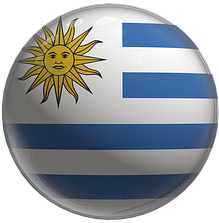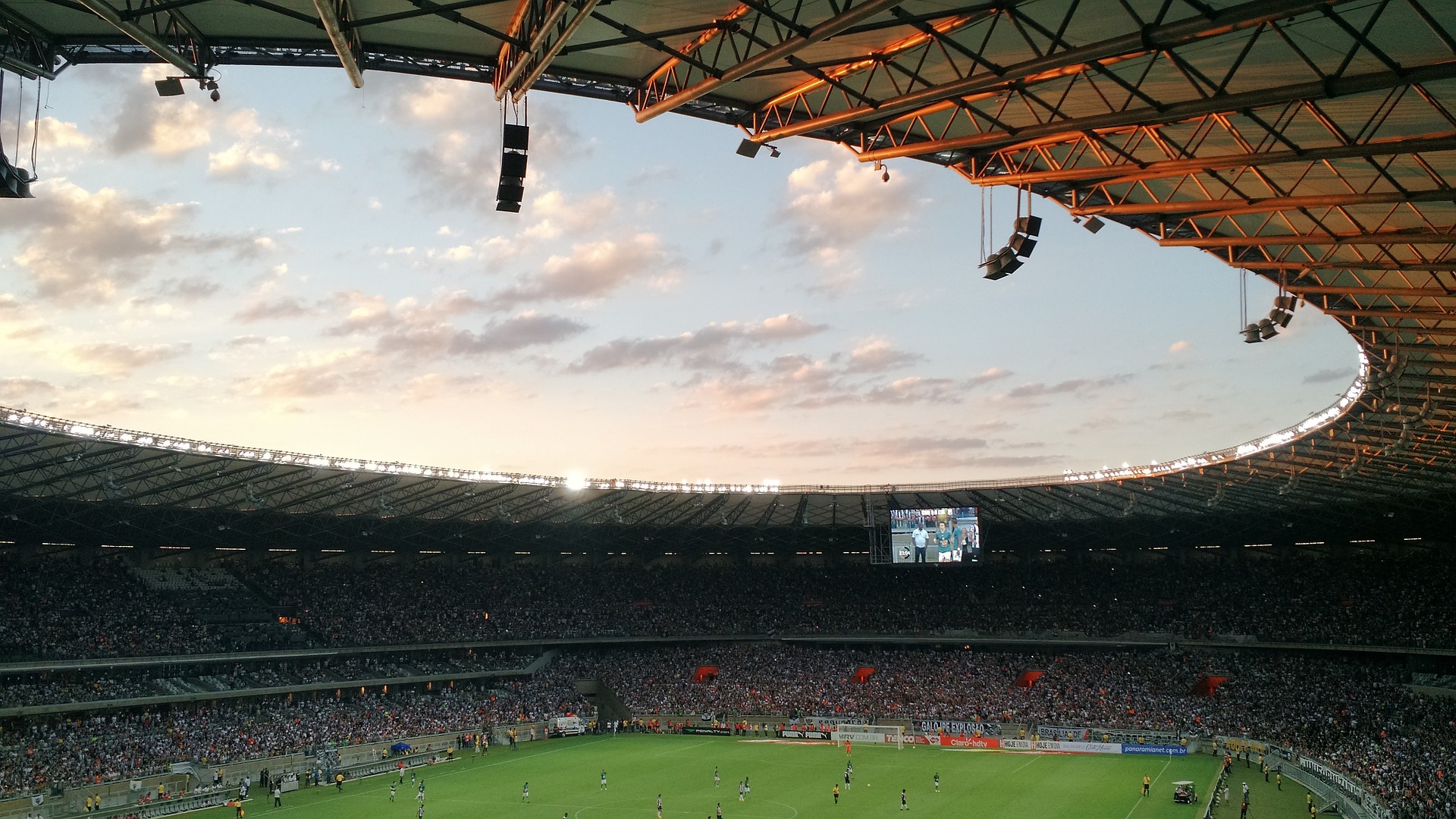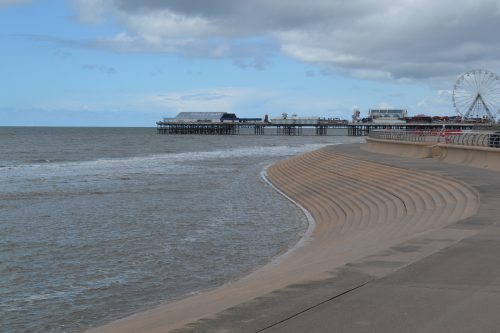
Nauka angielskiego online – Czytanie po angielsku – The FIFA World Cup
Czerwiec 26, 2018 Agata Pruszyńska
Nauka angielskiego online przez aktywne czytanie po angielsku –
Part #1
Dzisiejszy post to pierwszy wpis z serii poświęconej aktywnemu czytaniu w języku angielskim. Jak pewnie doskonale wiecie, czytanie jest bardzo ważne w nauce każdego języka obcego i sprawdza się znakomicie również w nauce angielskiego online. Stąd też wziął się pomysł na przygotowywanie tekstów pisanych przeze mnie w języku angielskim. To okazja do przeczytania czegoś ciekawego oraz nauczenia się nowych angielskich słówek lub zrobienia sobie krótkiej powtórki.
Planuję regularnie publikować takie teksty na różnych poziomach zaawansowania. Tematyka będzie dotyczyć najnowszych wiadomości ze świata, wydarzeń społeczno-kulturalnych i spraw z życia codziennego. Każdy tekst będzie zawierał słowniczek (glossary) z najważniejszymi słówkami i zwrotami. Dodatkowo do każdego wpisu będą publikowane oddzielnie ćwiczenia do samodzielnego wykonania w domu.
Idealnie byłoby, gdyby co tydzień na blogu pojawiał się jeden tekst. Zrobię co tylko mogę, żeby utrzymać tę regularność, a Was zachęcam do śledzenia mojego bloga językowego i aktywnego czytania po angielsku.
The FIFA World Cup
The FIFA World Cup, often simply called the World Cup, is an enormous feast for football supporters throughout the world. It’s the most glamorous and prestigious football tournament in the world. This sporting event is followed by millions of viewers and football fans worldwide.
This year the 21st FIFA World Cup is held in Russia. The tournament started on 14th of June and will last for a month ending with the final match on 15th of July.
There have been 20 World Cups so far. A team, which has won the most times (five times), is Brazil. The other winners are:
-
Italy and Germany (four times each of them),


-
Uruguay and Argentina (two times each of them),


The World Cup gathers massive audience in the world. According to FIFA’s data, the 2006 FIFA World Cup in Germany had a cumulative audience of 26.29 billion viewers[1].
The host country is automatically qualified for the tournament. Other countries have to be qualified by preliminary competition. Then the final tournament takes place.
The final tournament consists of two stages[2]:
-
the group stage,
-
the knockout stage.
In the group stage there are eight groups with four teams in each of them. It adds up to 32 finalists. Each group plays a round-robin tournament (also called all-play-all tournament). It means that each contestant plays matches against all other contestants within the same group. As a result each team plays three matches and six matches are played within each group. For winning the match a team scores three points. If a team draws with another team, each of them receives one point. For losing the match no points are awarded.
To preserve impartiality the last round of matches of every group takes place at the same time. Two teams with the greatest amount of points are promoted to the second round – the knockout stage. In this stage teams play one-off matches. If there is a draw, an extra time is used. If it doesn’t help, penalty shoot-outs are used to determine the winner. The winners proceed to the quarter-finals. After the quarter-finals, there are semi-finals and eventually the final and the third-place match which is contested by the losing semi-finalists.
It’s quite common that the host country wins the World Cup. It has happened six times so far. Countries which won on home soil are: England, France, Uruguay, Italy, Argentina and Germany. Other nations have also been successful when hosting the tournament. They didn’t win the tournament, but went really far in a competition.

Every four year the World Cup is broadcast to many countries around the world. It was first broadcast in 1954 and now it is one of the most followed tournament in the world.
The World Cup is also a great opportunity for the biggest multinationals to advertise their products. Many sponsors are attracted by this tournament. We’ve already got used to seeing brands such as: Adidas, Coca-Cola, McDonald’s etc. These brands are automatically associated with this football championships and in that people are easily influenced by commercials and start buying more products. Sales are dramatically increasing during and after the tournament.
Not only big companies earn huge money on this tournament. It is also a fantastic opportunity for host countries to obtain multimillion revenues from this sporting event. FIFA also generates big revenues ($ 4.8 billion from the 2014 World Cup[3]).
Every World Cup has got its own mascot. It’s usually chosen by a public vote in the host country. This year it’s wolf Zabivaka which has got colours of Russian national team.
Last tournament (The FIFA World Cup 2014) was won by Germany. The second place was taken by Argentina and the Netherlands placed third.
The best goal scorer of all time is Miroslav Klose who scored 16 goals during his four World Cups. However, the most successful team is not Germany, but Brazil with 5 titles. Next World Cup will be held in Qatar in 2022.

GLOSSARY
-
the World Cup – Mistrzostwa Świata
-
football supporters – fani piłki nożnej
-
prestigious – prestiżowy, renomowany
-
football tournament – turniej piłki nożnej
-
be held (in) – odbywać się (w)
-
gather – gromadzić, zbierać
-
massive audience – ogromna publiczność/widownia
-
the host country – kraj gospodarz, państwo goszczące
-
preliminary competition – eliminacje
-
the knockout stage – faza pucharowa
-
add up to – sumować się do
-
round-robin – system każdym z każdym (system kołowy)
-
contestant – zawodnik
-
draw – remis, zremisować
-
preserve impartiality – zachować bezstronność
-
an extra time – dogrywka
-
penalty shoot-outs – rzuty karne
-
proceed to – przechodzić dalej
-
on home soil – na własnym terenie
-
be broadcast to many countries – być transmitowanym w wielu krajach
-
multinationals – przedsiębiorstwa międzynarodowe
-
associate with – kojarzyć z
-
dramatically – gwałtownie
-
generate big revenues – generować wielkie przychody
-
the best goal scorer – najlepszy król strzelców
-
score goals – zdobywać/strzelać gole
Ćwiczenia do dzisiejszego artykułu znajdziecie tutaj – The FIFA World Cup – Ćwiczenia na słownictwo.
Jeżeli wpis Wam się spodobał, to zapraszam serdecznie do śledzenia kolejnych postów na blogu i aktywnego czytania po angielsku.
Reference list:
[1] https://www.fifa.com/about-fifa/news/y=2007/m=2/news=2006-fifa-world-cuptm-broadcast-wider-longer-and-farther-than-ever-bef-111247.html
[2] https://www.fifa.com/mm/document/fifafacts/mcwc/ip-201_04e_fwc_formats_slots_8821.pdf
[3] https://www.fifa.com/about-fifa/news/y=2015/m=3/news=fifa-financial-report-2014-frequently-asked-questions-2568090.html














